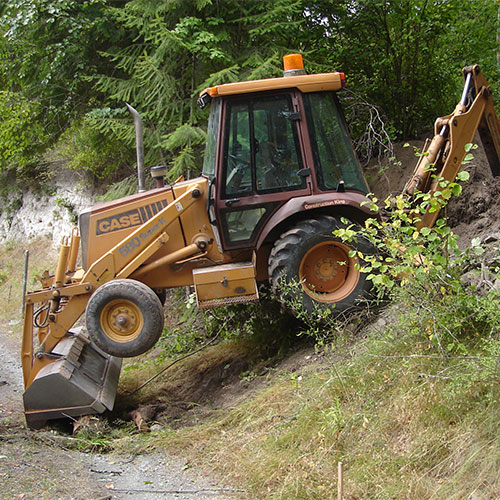Comprehensive Excavation Approaches: Grasping the Principles for Success
The mindful planning, accurate implementation, and careful focus to detail called for in excavation jobs demand a detailed method that incorporates different fundamental aspects. The true mastery lies not merely in understanding these principles yet in flawlessly incorporating them to navigate the complexities of excavation projects with finesse.
Recognizing Excavation Task Planning

Effective excavation tasks are constructed on the structure of complete and meticulous preparation. The preliminary stage of any type of excavation job is the planning phase, where crucial decisions are made that can dramatically influence the result of the project. Throughout this stage, it is important to gather all relevant information concerning the website, consisting of topographical studies, dirt structure, and any possible hazards that may exist. Recognizing the task timeline, extent, and budget constraints is vital for producing a thorough excavation plan that guarantees the job's success.
One key aspect of excavation project planning is the development of a comprehensive timeline that details the sequence of landmarks, tasks, and due dates. This timeline functions as a roadmap for the job group, enabling them to track development and make required adjustments to ensure the task remains on timetable. Furthermore, a well-defined budget plan that accounts for all expenses, consisting of tools rental, labor expenses, and materials, is necessary for staying clear of price overruns and hold-ups. By meticulously thinking about all these variables during the planning phase, excavation jobs can be performed efficiently and successfully, resulting in successful end results.
Dirt Evaluation and Site Evaluation
Carrying out comprehensive dirt analysis and website evaluation is a crucial action in the preparation phase of any kind of excavation job. Dirt analysis includes determining the make-up, structure, and residential properties of the dirt at the excavation website. This info is critical for recognizing the soil's bearing capability, moisture material, and potential for disintegration, which are key factors in establishing the excavation methods and equipment needed for the project.
Website analysis surpasses soil analysis and encompasses a broader assessment of the overall site conditions. This assessment consists of recognizing any kind of potential hazards, such as below ground utilities, ecological problems, or unstable surface, that could impact the excavation process. By completely examining the website, project supervisors can create reliable excavation methods that focus on security, efficiency, and environmental management.
Making use of innovative modern technologies like ground-penetrating radar, dirt tasting, and drone studies can boost the precision and performance of dirt analysis and site examination. Investing time and resources in these preliminary steps can ultimately conserve time and prevent costly delays or problems throughout the excavation procedure.
Devices Choice and Application
Reliable excavation jobs count heavily on critical tools option and usage to make certain optimum efficiency and performance. Choosing the right tools for the work is crucial in optimizing effectiveness and minimizing downtime. Aspects such as the kind of dirt, deepness of excavation, and job scope play a substantial role in determining one of the most suitable visit their website tools for the task handy.

In addition to choosing the proper devices, correct application is vital to task success. Operators must be trained to handle the devices securely and effectively - lancaster trenching. Regular maintenance checks and timely repair work assist avoid break downs and guarantee consistent performance throughout the task
Precaution and Regulations Compliance
In the world of excavation tasks, focusing on safety and security actions and compliance with laws is critical to ensuring a safe and legally sound functional atmosphere. Precaution encompass a variety of methods, including conducting comprehensive website evaluations, carrying out proper signs and barriers, and offering adequate safety and security training for all personnel associated with the excavation procedure. Adherence to policies, such as OSHA needs in the USA, guarantees that the excavation project fulfills the essential criteria to secure workers, spectators, and the surrounding setting.

Surveillance Progression and Adjusting Methods
Just how can forecast managers effectively track the innovation of excavation jobs and adapt their strategies as necessary to optimize outcomes? Monitoring progress is essential for making certain that excavation tasks stay on track and fulfill due dates.

Conclusion
Finally, understanding the basics of extensive excavation strategies is important for the success of any job. By comprehending project preparation, evaluating dirt and site conditions, picking proper equipment, abiding with security regulations, and monitoring development, job supervisors can make sure a smooth and efficient excavation process. Carrying out these techniques will certainly result in effective outcomes and lessen potential dangers or troubles during the excavation job.
The initial phase of any kind of excavation project is the preparation stage, where important decisions are made best site that can substantially impact the end result of the project. Recognizing the job extent, timeline, and budget constraints is important for developing a comprehensive excavation plan that makes sure the task's success.
How can forecast supervisors properly track the development of excavation jobs and adjust their strategies accordingly to enhance end results? By very closely keeping track of development and being ready to adjust methods, task managers can enhance the general success of excavation tasks.
By comprehending task planning, examining dirt and site conditions, picking ideal devices, complying with safety and security laws, and checking development, task managers can ensure a smooth and efficient excavation process.
Comments on “Business Lancaster Trenching - Trenching Providers for Organizations in Lancaster”